Panels and Discussions
May 13 2025
A new world order is emerging: How can we position solidarity between farmers in the North and South?
May 13 at 9 am. - Suite Sutton
Despite the difficulty of predicting the future, the world is already moving towards a new order in which the tectonic plates of geopolitics are shifting very rapidly. Regardless of the country, the strong trend that is emerging is “every man for himself.” In this new trend, which is taking shape in doctrine and public policy, official development assistance seems to be one of the first to bear the brunt.
Against this bleak backdrop and based on the foundations on which AgriCord was built, where do agricultural development and solidarity among the world's farmers stand?
This panel discussion will be followed by a discussion in smaller groups.
The Speakers
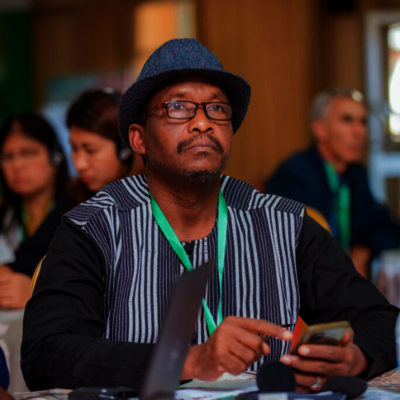
Ibrahima Coulibaly is a Malian farmer and trade unionist. He is also president of the National Council of Peasant Organizations of Mali (CNOP), president of the Network of Peasant Organizations and Agricultural Producers of West Africa (ROPPA) and president of the PanAfrican Farmers Organization (PAFO).
Throughout his career, he has always fought for farmers' rights and for a coherent agricultural policy focused on family farming. He has been actively involved in Mali's agricultural policy law, land security for farming families, the protection of family farming, land grabbing, and the agroecological transition of agriculture. Mr. Coulibaly heads the Nyéleni International Agroecology Training Center and was the United Nations Special Ambassador for the International Year of Family Farming in 2004.
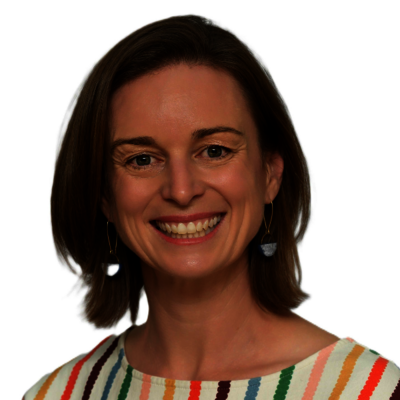
Kate Higgins is the Chief Executive Officer of Cooperation Canada, a network of more than 100 Canadian international cooperation and humanitarian organizations that work with partners in Canada and globally for a fairer, safer and more sustainable world.
Before joining Cooperation Canada, Kate worked as the Deputy Executive Director of Oxfam Canada, in addition to serving as Interim Executive Director in 2020. Kate has also worked in senior strategy and policy roles at CIVICUS, a global alliance of civil society organizations, and think tanks the North-South Institute and the Overseas Development Institute.
Kate started her career at the Australian Agency for International Development (AusAID). She has degrees in economics and development studies from the University of Sydney and the University of Oxford.
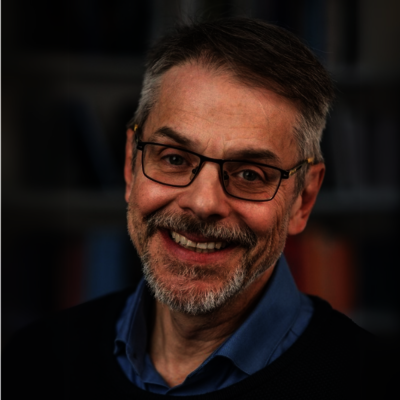
Dominique Caouette is a full professor in the Department of Political Science. His teaching focuses on international relations and Southeast Asia. Since November 2023, he has held the CÉRIUM Chair in Asian and Indo-Pacific Studies. He is also Director of the Human Rights Observatory (ODP) and Interim Director of the Centre for Asian Studies at the University of Montreal.
His research focuses on the impact and influence of non-state actors, particularly civil society organizations and private economic actors. This transnational approach has been applied to four research areas: food sovereignty and land tenure; the political economy of natural resources in the Global South; development and international cooperation; and the action of citizen activism networks around political and socio-economic issues.
At the same time, he is interested in the international relations of Southeast Asia as a regional and geopolitical entity, at a time when China is increasingly asserting itself as a regional power. His research has led to the publication of articles and the co-editing of collective works, including Beyond Colonialism, Development and Globalization: Social Movements and Critical Perspectives (Zed Books, 2016), L'Asie du Sud-Est à la croisée des puissances (PUM, 2019) with Serge Granger, and Enjeux et défis du développement international: Acteurs et champs d'action (PUO, 2019) with Pierre Beaudet, Paul Haslam, and Abdelhamid Benhmade.
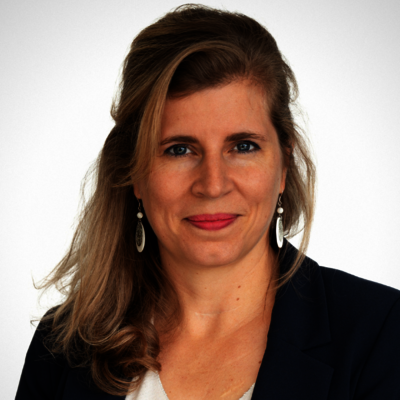
Magali Delomier is originally from France and grew up in a small rural village in central France. After completing a six-year multidisciplinary university program (environmental biology, rural planning and development, rural tourism), she obtained a master's degree in rural planning and development and a European master's degree from the Sorbonne (Paris).
Following a trip around the world that included visits to seven countries and several work experiences in New Zealand, Magali immigrated to Belgium in 2006 and worked as a policy advisor at the European Council of Young Farmers, focusing particularly on environmental and land use issues.
In 2009, Magali Delomier accepted the position of Executive Director of the Fédération de la relève agricole du Québec (Quebec Federation of Young Farmers) and left Belgium for a second immigration project in Quebec. She worked there for nearly eight years, particularly in the development of this organization, enabling it to become more firmly rooted in the region and significantly increase its human and financial resources.
She then took on new challenges as Director of Public and Union Affairs for the Union des producteurs agricoles confederation. For six years, she carried out various communication, public relations, and union activities and organized major events to promote the agricultural profession, promote the organization, and develop mobilization and community life, all while leading a busy personal life with her two young children.
Magali Delomier is now Deputy Director General of the Union des producteurs agricoles. Working alongside the Director General and the members of the Executive Committee, her main responsibilities are to maintain collaborative relationships with the organization's external and internal partners, particularly its affiliated and related organizations, in order to coordinate collective actions that contribute to the Union's mission and objectives, and to play a strategic advisory role in matters of representation, cohesion, and organizational development.
Combining farm profitability and biodiversity protection: What are the possible courses of action?
May 13th at 1:45 pm. - Suite Sutton
The noise created by geopolitical shifts almost overshadows the urgent global crises of inequality and climate change. Far from being resolved, these crises are likely to worsen given the growing number of countries that are disengaging from these issues. Despite the challenges ahead, it is more important than ever that individuals and organizations that believe in social and climate justice continue their commitments and actions in this regard.
Professional agricultural organizations and agri-agencies now have a moral obligation to address this issue. In addition to the Convention on Biological Diversity and other international instruments, what solutions can be put forward to promote agriculture that is enriched by a green economy?
This panel will be preceded by a presentation from Global Affairs Canada on biodiversity, particularly in the agricultural sector.
This panel will be followed by a discussion in breakout groups.
The Speakers
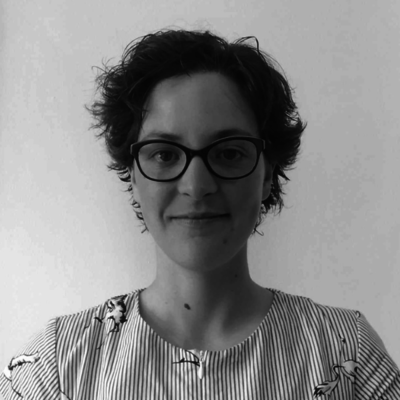
Chloé is a scientific coordinator at the CRCEE. She obtained her PhD from the Université du Québec en Outaouais in 2022. As part of her thesis, she used economic analysis tools to estimate the supply and demand for water-related ecosystem services in agricultural areas in Quebec.
After a postdoctoral fellowship focusing on the benefits of beluga whales in the Saguenay-St. Lawrence region, she began working for the Chair as a professional. Since then, she has coordinated and participated in several research projects, including the Femmes Pro-Forêts and SAGA 2 projects, which are currently being carried out internationally in collaboration with UPA DI.
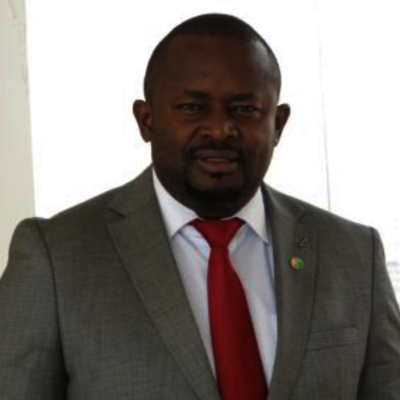
Mr. Stephen Muchiri has been working in the Agriculture sector for the last 20 years. He is the CEO of Eastern Africa Farmers Federation (EAFF), which is a regional network of 23 national farmer unions, federations and apex co-operatives in 10 countries covering EAC, Horn of Africa and DRC and with over 25 million members. EAFF’s mandate is to represent, advocate, lobby, build capacity and provide information to farmers of Eastern Africa with the view of building cohesion and realizing prosperity of its members. EAFF executes its mandate through the organization of farmers.
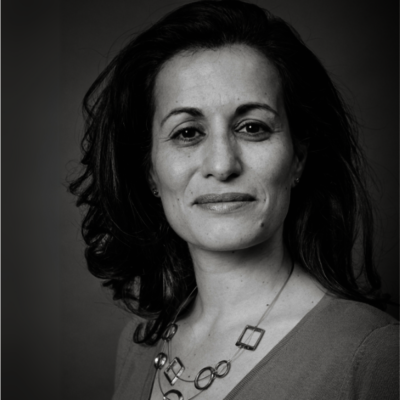
For 25 years, Ghalia has specialized in urban, peri-urban, and metropolitan territorial dynamics in Greater Montreal. She holds a BA in History, a certificate in archival studies, a master's degree in urban planning, and is currently completing her PhD.
From 2011 to 2018, Ghalia was responsible for mobilizing all Montreal food partners and developing the first development plan for the Montreal food system. She also coordinated the creation of Quebec's first food policy council. Ghalia has also worked as a lecturer (Concordia University and Sherbrooke University) and as a consultant and strategic advisor to municipalities on issues related to the redevelopment and revitalization of agricultural land in metropolitan and peri-metropolitan areas.
Since 2018, she has been the coordinator of the Environment, Planning, and Advisory Services team within the Agricultural Research and Policy Department at the Union des producteurs agricoles du Québec (Quebec Farmers' Union).
At DREPA, Ghalia works with her team on provincial and interregional issues. Here are a few examples:
- Projects such as the Living Labs Initiative 2019-2023 and 2023-2028, Coulées agricoles 2022-2024, and Agrisolutions climat-AAC 2022-2025.
- Legislative and regulatory monitoring in both land use planning and the environment.
- Awareness and mobilization activities (such as the Agri-Environmental Summit in 2019, 2022, and 2024, and provincial reflection on urban agriculture and biodiversity).

Monica Kobayashi works for the Secretariat of the Convention on Biological Diversity (CBD).She is responsible for the Programmes of Work on Agricultural Biodiversity and Inland Waters Biodiversity. One of her main tasks is to support countries in the implementation of the Kunming-Montreal targets, including the ones related to water, food systems and pollution.
She holds a Master of Science degree with a specialization in biodiversity management from Université de Montréal and an M.B.A. from HEC Montreal. Currently, she is a Ph.D. candidate in Landscape and Environment at Sapienza Università di Roma.
